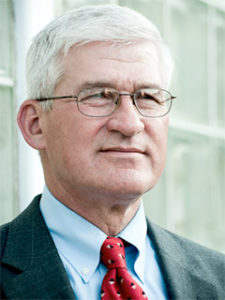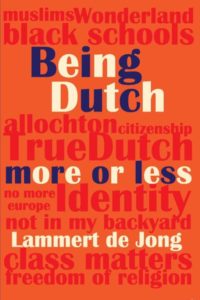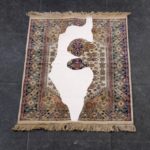The Life And Times Of Es’kia Mphahlele
A wonderful documentary about one of South Africa’s greatest authors, Es’kia Mphahlele, who was one of the first writers to leave for exile in the 1950s and write about apartheid as it was unfolding in South Africa. His novel “Down Second Avenue” became an international sensation and was based on his personal struggles of being raised in poverty, getting an education and leaving the country. Es’kia eventually returned to South Africa in August 1977, during a tumultuous period one year after the June 16, 1976 Soweto riots and less than a month before the death of Steve Bantu Biko. Despite opposition from the South African government, he was offered a position at the University of Witwatersrand and he became an influential cultural leader, revered for his ideas on education and African Humanism.
Part 2 of a wonderful documentary about one of South Africa’s greatest authors, Es’kia Mphahlele, who was one of the first writers to leave for exile in the 1950s and write about apartheid as it was unfolding in South Africa. His novel “Down Second Avenue” became an international sensation and was based on his personal struggles of being raised in poverty, getting an education and leaving the country. Es’kia eventually returned to South Africa in August 1977, during a tumultuous period one year after the June 16, 1976 Soweto riots and less than a month before the death of Steve Bantu Biko. Despite opposition from the South African government, he was offered a position at the University of Witwatersrand and he became an influential cultural leader, revered for his ideas on education and African Humanism.
Stanford Encyclopedia Of Philosophy
 Welcome to the Stanford Encyclopedia of Philosophy (SEP), which as of March 2018, has nearly 1600 entries online. From its inception, the SEP was designed so that each entry is maintained and kept up-to-date by an expert or group of experts in the field. All entries and substantive updates are refereed by the members of a distinguished Editorial Board before they are made public. Consequently, our dynamic reference work maintains academic standards while evolving and adapting in response to new research. You can cite fixed editions that are created on a quarterly basis and stored in our Archives (every entry contains a link to its complete archival history, identifying the fixed edition the reader should cite). The Table of Contents lists entries that are published or assigned. The Projected Table of Contents also lists entries which are currently unassigned but nevertheless projected.
Welcome to the Stanford Encyclopedia of Philosophy (SEP), which as of March 2018, has nearly 1600 entries online. From its inception, the SEP was designed so that each entry is maintained and kept up-to-date by an expert or group of experts in the field. All entries and substantive updates are refereed by the members of a distinguished Editorial Board before they are made public. Consequently, our dynamic reference work maintains academic standards while evolving and adapting in response to new research. You can cite fixed editions that are created on a quarterly basis and stored in our Archives (every entry contains a link to its complete archival history, identifying the fixed edition the reader should cite). The Table of Contents lists entries that are published or assigned. The Projected Table of Contents also lists entries which are currently unassigned but nevertheless projected.
Go to: https://plato.stanford.edu/about.html
F-Site – Lesmateriaal over vrouwen uit de geschiedenis
 F-site biedt geschiedenisdocenten lesmateriaal over vrouwen uit de geschiedenis, toegespitst op de tien tijdvakken uit het geschiedenisonderwijs. Het kan tevens als bron dienen voor leerlingen die een spreekbeurt of werkstuk over een historische vrouw willen geven. Natuurlijk is F-site er ook voor iedereen die meer wil weten over vrouwen uit de geschiedenis: van de prehistorie tot nu.
F-site biedt geschiedenisdocenten lesmateriaal over vrouwen uit de geschiedenis, toegespitst op de tien tijdvakken uit het geschiedenisonderwijs. Het kan tevens als bron dienen voor leerlingen die een spreekbeurt of werkstuk over een historische vrouw willen geven. Natuurlijk is F-site er ook voor iedereen die meer wil weten over vrouwen uit de geschiedenis: van de prehistorie tot nu.
Alle historische vrouwen op F-site worden uitgelicht aan de hand van een biografie, facts, quotes en een opdracht voor in het voortgezet onderwijs. Deze opdracht is een handreiking en biedt inspiratie voor hoe je de historische vrouwen meer zichtbaar kunt maken voor leerlingen. Bij het maken van het materiaal is er rekening gehouden met de kenmerkende aspecten en begrippen uit de huidige geschiedenismethodes.
De vijftig vrouwen op F-site zijn slechts een begin. F-site is een platform dat steeds verder wordt aangevuld met nieuwe verhalen en lesmateriaal. Schrijf je hieronder in voor de nieuwsbrief en volg ons op social media om op de hoogte blijven.
Ga naar: https://www.f-site.nu/about
Chomsky: Trump’s Actions On Syria Reflect The Foreign Policy Of A Con Man
 Donald Trump’s handling of U.S. foreign policy with Syria has baffled and angered both the diplomatic and military establishments in the United States. Nonetheless, he continues to maintain power as “an effective con man who has a good sense of what animates his voting base,” Noam Chomsky argues in the exclusive interview for Truthout that follows.
Donald Trump’s handling of U.S. foreign policy with Syria has baffled and angered both the diplomatic and military establishments in the United States. Nonetheless, he continues to maintain power as “an effective con man who has a good sense of what animates his voting base,” Noam Chomsky argues in the exclusive interview for Truthout that follows.
Trump rose to power with the aid of vitriolic but disingenuous “anti-establishment” rhetoric that appealed to millions of disgruntled voters. Essentially, Trump promised to “drain the swamp” in Washington, and to advance a domestic and foreign policy agenda serving U.S. national interests and those of “average people.” However, Trumpism in practice has meant something different: rolling back the remaining tatters of liberalism on the domestic front, sharpening racist xenophobia, facilitating the rise of white nationalism and eroding longstanding global alliances that the United States formed after the end of World War II. Truthout’s C.J. Polychroniou asked Chomsky to share his thoughts on Trump’s stance toward Syria, the impeachment effort against the president and the dynamics of the 2020 election.
C.J. Polychroniou: Noam, since coming to office, Trump has shown on numerous occasions that he is not a normal foreign policy president. But can you make any sense out of his stance toward Syria?
Noam Chomsky: The first of Trump’s recent steps was to withdraw the small U.S. contingent that was a deterrent to Turkey’s expansion of its invasion of Syria and to authorize Erdoğan’s plans to extend his atrocities and ethnic cleansing of Syrian Kurds. His second step was to move U.S. troops to “secure” the oil-producing areas. The latter, apparently after he was told about the oil, is easy to understand. He has held all along that our only standing interest in the Middle East is to “secure” its oil for our own benefit. As for the first step, we can only speculate, but it seems quite likely that the motive is what guides him consistently: How will the action affect me? Trump is an effective con man who has a good sense of what animates his voting base. In this case, he presumably expected (correctly it seems) that withdrawing a few hundred troops would appeal to the sector of the population that resonates to his message that America is foolishly expending its blood and treasure to help “unworthy” people who don’t even thank us for our sacrifices on their behalf, and that Trump is the first president to stand up for the suffering American people instead of giving everything away to foreigners out of stupidity (or treachery).
It’s worth recalling that repeated polls have shown that Americans vastly overestimate the scale of foreign aid — and recommend that it be considerably higher than it actually is (putting aside what constitutes “aid”).
Much has been written and said about the betrayal of the Kurds, a U.S. ally in the war against ISIS (also known as Daesh). This isn’t, however, the first time that the U.S. has betrayed the Kurds and other former allies.
Betrayal of the Kurds has been virtually a qualification for office since Ford-Kissinger abandoned the Kurds to the mercy of Saddam Hussein when they were no longer needed. Reagan went so far as to support his friend Saddam’s chemical warfare campaign against Iraqi Kurds, seeking to shift the blame to Iran and blocking congressional efforts to respond to these hideous crimes. Clinton’s method was to provide the arms for the murderous government assault on Turkish Kurds, which killed tens of thousands, wiped out 3,500 towns and villages, and drove hundreds of thousands from their homes. (See Noam Chomsky, The New Military Humanism, Chapter 3. London: Pluto Press, 1999). Clinton’s flood of military aid increased along with the shocking crimes, as Turkey became the prime recipient of American arms (outside of Israel-Egypt, a separate category). Read more
The Dutch Black School: They Are Not Us
Lammert de Jong – Being Dutch. More or less. In a comparative Perspective of USA and Caribbean Practices Rozenberg Publishers 2010. ISBN 978 90 3610 210 0 – The complete book will be online soon.
‘An Inconvenient Truth’
In the Netherlands, ‘black’ is not black; it is ‘non-western’, including Moroccan, Turkish, and people of Caribbean origin, lumped together as allochtons. In government statistics, schools with more than 70% allochton pupils are generally classified as a black school; schools with less than 20% allochton pupils are graded as white. The black school concept is also used in relation to the surrounding neighborhood. Schools with more pupils of non-western origin than expected in view of the composition of the neighborhood are labeled blacker or, in the case of an over-representation of white pupils, whiter. A deviation of 20% or more between neighborhood and school population classifies a school as too white or too black (Forum, 2007). The number of primary schools with more than 70% allochton pupils is increasing; in Dutch nomenclature: the schools are becoming blacker.
The Dutch black school is a perfidious contraption that locks in children of non-western origin, while its black label flags an underlying apartheid syndrome to underscore for the True Dutch – intentionally or not – how different these allochtons are. Yet the black school touches an open nerve in the Netherlands, a sensitive reality that surpasses its statistical definition. On the one hand the black school reeks of apartheid, which the Dutch so bravely contest when occurring elsewhere in the world. On the other hand the True Dutch are well aware that their entitlement and unencumbered access to white schools is at stake when school segregation is tackled in earnest. So far Dutch counteraction is limited to research and some experimental desegregation projects.
The Dutch black school is embedded in the particular Dutch school system that funds public-secular as well as private-denominational schools. Once, the Dutch school system was driven by the accommodation of different beliefs. On the strength of their belief – church-religion or secular ideology – parents wanted a school for their children that adhered to the values, doctrines, and rules of their faith, and paid for by the state. [Note: In 2009 the Netherlands’ Council of State pointed out that publicly financed orthodox religion-based schools may refuse teachers who identify with a particular gay life style. The fact that a teacher is gay is not sufficient to deny a position, but if he or she is in a same sex relation and married in church or city hall, that may suffice, as such contravenes the orthodox rule that marriage is a holy sacrament between one man and one woman]
Denominational and non-religious schools emphasized particularity, a distinctiveness that corresponded with religious doctrines or ideological orientations. The principle of Freedom of Education (Onderwijsvrijheid) is enshrined in the Netherlands Constitution, art. 23. Over the years parents have come to believe that they are entitled to choose a specific school for their children, which is a travesty of the freedom to choose a particular type of school, based on denominational or secular definition.
Dutch politics wavers when coming to grips with the effects the black school brings – quite literally – home. Most parents don’t set out intending to discriminate, which makes a noble difference, and legally enforced segregation is not on the books. Nonetheless a segregated white-black educational system has become a reality, with most True Dutch children in better schools and having better school careers, and children of allochtons at the other end. And that with long lasting effects after the school years have come to an end. This type of school segregation stigmatizes New Dutch children for life, while reinforcing an allochton footprint that will divide the nation for years to come. Although most political parties assert that integration is the major social issue of our time, they fail to confront the black school with a sense of urgency. Dutch politics still has to acknowledge that the black school emblematizes the allochton population in the Netherlands with an explicit signature: They are not Us.
Black schools are a common feature in most major Dutch cities. So far the black school does not stand out in Dutch politics as a problem that must be solved urgently by law, regulation or in the courts. The black school seems more of an inconvenient truth than a critical social or political issue. To an outsider this must be surprising, given that the Netherlands is known for its rock-solid liberal reputation. How come then that the Netherlands has become a segregated nation? And do they discriminate against people of color? Do the Dutch not know how to handle the ethnic complexities of today’s multi-cultural society? Or is it a lack of compassion for those who do not belong to the white Dutch tribe: Discrimination or not, my children first. Or is it merely a matter of social-economic stratification, a distinction between advantaged and disadvantaged children, so that the Dutch black school is just a myth (Vink, 2010)?
“Trump Specializes In Showmanship Not Statecraft”: An Interview With Andrew Bacevich

Andrew J. Bacevich. Professor Emeritus of International Relations and History. Photo: Boston University
What are the founding principles of U.S. foreign policy? Was the U.S. ever isolationist as mainstream diplomatic history claims? And what about Donald Trump’s foreign policy? Is he a normal foreign policy president? Is he in favor of U.S. global expansion? Is China emerging as the new global empire? Andrew Bacevich, Professor Emeritus of International Relations and History at Boston University and now president of the Quincy Institute for Responsible Statecraft tackles the above questions in the interview below. A retired US army Colonel who fought in the Vietnam War an lost a son in the Iraq war, Bacevich is the author of numerous works on U.S. foreign policy, including among many others, Washington Rules: America’s Path to Permanent War (2010); The New American Militarism: How Americans Are Seduced by War (2005); Breach of Trust: How Americans Failed Their Soldiers and Their Country (2013; and of the forthcoming book The Age of Illusions: How America Squandered Its Cold War Victory.
C. J. Polychroniou: I would like to start by asking you to reflect on the founding principles of U.S. foreign policy, which many regard as “geopolitical isolationism” and “unilateralism,” and whether this is what the U.S. has practiced for most of its history.
Andrew Bacevich: The overarching theme of U.S. policy from the very founding of the Republic has been 1780s opportunistic expansionism. As far back as the 1780s, the Northwest Ordinances had made it clear that the United States had no intention of confining its reach to the territory encompassed within the boundaries of the original thirteen states. While the U.S. encountered sporadic resistance during the course of its remarkable ascent, virtually all of it proved to be futile. With the notable exception of the failed attempt to incorporate Canada into the Union during the War of 1812, expansionist efforts succeeded spectacularly and at a remarkably modest cost. Already by mid-century, the United States stretched from sea to shining sea.
In 1899, the naturalist-historian-politician-sometime soldier and future president Theodore Roosevelt neatly summarized the events of the century just drawing to a close: “Of course, our whole national history has been one of expansion.” When TR uttered this rarely acknowledged truth, a fresh round of expansionism was underway, this time reaching beyond the fastness of North America into the surrounding seas and oceans. Among Europeans, a profit motivated but racially justified imperialism was in full flower. The United States was now joining in. The year before, U.S. forces had invaded and occupied Cuba, Puerto Rico, Hawaii, Guam, and the island of Luzon across the Pacific. Within two years, the United States had annexed the entire Philippine Archipelago. Within four years, with Roosevelt now in the White House, U.S. troops arrived to garrison the Isthmus of Panama where the United States, subsequent to considerable chicanery, was setting out to build a canal. Soon thereafter, to preempt any threats to that canal, successive administrations embarked upon a series of interventions throughout the Caribbean. Roosevelt, William Howard Taft, and Woodrow Wilson had no desire to annex Nicaragua, Haiti, and the Dominican Republic, they merely wanted the United States to control what happened in those small countries, as it already did in nearby Cuba. While President Trump’s recent bid to purchase Greenland from Denmark may have has failed, Wilson – perhaps demonstrating greater
skill in the art of the deal – did persuade the Danes in 1917 to part with the Virgin Islands for the bargain price of $25 million.
The U.S. preference for operating unilaterally and its determination to avoid getting entangled in European power politics during this period is of much
less significance than narrative of expansion, as Americans persistently sought more — more territory, more markets, more abundance. Read more



